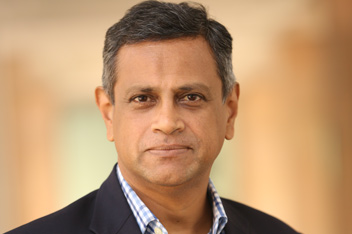CEO Perspectives by Professor Nandkishore Doreswamy
Mastering financial strategies is the key to unlocking an entrepreneur's potential, shaping their ability to navigate market dynamics, meet demand, and elevate operational scalability—a pivotal factor in the journey of entrepreneurship.
We live today in an era of dramatic, destructive, and ever accelerating change. If one looks at the Fortune 500 list from 20 years ago, almost half the companies do not even exist today. One of the most dramatic examples of a fall from grace is that of General Electric. It was the world’s most valuable company in 1990. It is now not anywhere in the top 500!
A lot of these changes are driven by technology, which in turn is driving changes in business models, the way we connect with consumers and with each other, and even the way we define ourselves. As a result, we see several established companies closing, being acquired, people being laid off, even as we see other sectors of the economy growing and hiring more people.
So, what are the implications for leadership? What are the implications for us in our careers?
The obvious and first question when faced with such dramatic change is, how can we escape this? Is there any way that we can actually predict a disruption? How does one get to be the disruptor? And if one does see disruption happening in one’s industry, then how should one respond? What responses work? Are there responses that do not work?
What is the task of leadership? How does one prepare the organisation to deal with, digest, and respond to such changes? Is change an opportunity or is it a threat? What can we learn from the examples of organisations who have successfully driven change and adapted to it?
And once you have developed your strategy, it is often said that “culture eats strategy for breakfast”. What this basically means is that no matter how good your strategy is, the culture of your organisation is what determines how well the strategy is executed. So how does one sense and shape company culture?
So, we need to look at the execution of strategy in a very careful way.
How does one ensure that strategy is executed? It starts with communication. How do we communicate our strategy? Are there any secrets to great communication? How does a leader become a better communicator? Whether it is communicating to team members, subordinates, peers, or even hierarchical superiors.
We will explore these and other questions from the perspective of the Chief Executive Officer (CEO) a comprehensive course in the General Management Programme offered by ISB Executive Education.
During your career, you will see several different levels and perspectives. You may experience disruption, (both positive and negative) which affects the way you work. How does this perspective change with your level in the hierarchy, and does the CEO need to view things differently?
We will also touch upon how to evolve as a leader as one moves up the hierarchy. How does one get promoted and break the glass ceiling (if such exists in your company)?
We will look at effective strategy development in disruptive times, what makes for good strategy execution, we will discover a tool kit for effective leadership communication, and we will look at how a leader can assess and thereafter change the culture of the organisation.
We will discuss all of these using academic models published in literature, but also drawing heavily upon the course instructors’ vast global experience as a CEO, as a venture capitalist and as a consultant and Board Director.
Above all, we will learn from each other in classroom discussions.
Be prepared for an exciting journey of learning and discovery.
The General Management Programme (GMP) is designed to accelerate the leadership ascent of high- calibre executives. The programme has been designed keeping in mind your needs for leadership education and prepare you to play a more strategic role in your organisation’s success.
Check out more such courses for senior management.





